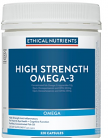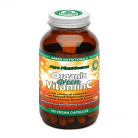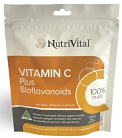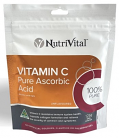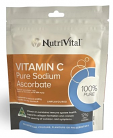Asthma
Asthma is a chronic (long-term) condition of the respiratory system. The word is derived from the greek word aazein, which means “sharp breath”. Those who have the condition suffer from recurrent ‘asthma attacks’, during which they may experience wheezing, chest tightness, difficulty breathing and coughing. This is because a trigger (whether emotional, allergic and/or environmental) has stimulated the bronchial tubes in the lungs to constrict and become inflamed, producing excessive amounts of mucus. The smaller airways and mucus blockage are what stop air from moving freely in and out of the lungs. In between episodes, the person may have mild or no symptoms.
Episodes may be triggered by many things, depending upon the individual. These commonly include:
- Exercise.
- Pollens and dust.
- Cold, warm or moist air.
- Smoke or air pollution.
- Stress.
- Viral infections, like the common cold.
- Medications.
- Food allergies.
- Hormone changes.
Because the tightening of the airways is reversible, drugs are usually given, which stimulate the body to open the airways, and reduce inflammatory responses.
As those with Asthma may have food allergies, an important part of Naturopathic treatment is to assess for these, and help patients to avoid them, or to help the body stop responding to these foods as harmful substances.
Obese and overweight people have a higher risk of developing asthma, and so another important lifestyle step is to lose weight until at a healthy BMI. This may assist in the reduction of symptoms.
Naturopaths look at Asthma partly as an immune dysregulation, in which the body is mistakenly responding to substances that are not necessarily harmful, and/or reacting in an excessive way. Thus, there is a large focus on restoring optimal immune function. They also look at reducing inflammation in the body, assisting in bronchodilation (keeping the airways wide open), and (in mild attacks) helping the patient to cough up and remove mucous from their lungs.
Herbs and nutrients that are great at reducing inflammation include Fish Oil, Boswellia and Turmeric, which has the additional benefit of relieving coughing fits and helping to remove mucous. The flavonoid Quercetin has also been studied for its anti-inflammatory benefits, and high levels of this may be found in foods such as onions, apples, kale, blueberries, tea and broccoli.
Studies have shown that Vitamin C and Zinc significantly improve asthma symptoms in children, when taken either separately or together. This may be due to their antioxidant activity, or perhaps because of their immune supportive function. Echinacea is perhaps the best known herb to support proper immune function, and evidence suggests that it may have a modulary effect. This means that it can support immunity if it is low (for example, where a person has recurrent colds and these trigger asthma), or reduce excessive immune responses (e.g. where allergies trigger asthma attacks). Astragalus is specifically recommended in long-term allergic asthma, but should not be taken in an acute infection -Fusion Astra 8 is a good formula to support long-term immune health.
Intake of antioxidants may help to reduce allergic reactions, including the well-known Vitamins A, C, E and the mineral Selenium, which is very deficient in many of our foods. Probiotic supplements, such as Ethical Nutrients Inner Health Plus are also a good idea, as the bacteria in our gastrointestinal tracts play a large role in our immune responses. Children with altered amounts of ‘bad bacteria’ (known as dysbiosis) have been shown to be more at risk of Asthma. When animals with Asthma have been treated with probiotics alone, they have significant improvements in their symptoms.
To help keep airways as open and clear as possible, your Naturopath may recommend herbs such as Adhatoda, Coleus & Liquorice, (some of which are found in Herbs of Gold Hit Cough) or the nutrient Magnesium, which also helps when a person is highly stressed. Studies have shown that Magnesium, when taken for 3 weeks to 2 months has the ability to reduce asthma symptoms, frequency of asthma attacks and lessen the need for asthma medications. A good quality supplement is Nutra Life Organic Magnesium Complete, which contains easily digestible forms of this mineral.
If you have allergies to pollens or animal hair that trigger your Asthma, either Fusion Allergy or Brauer Hayfever Relief may help to give relief from these.
There are far too many natural options for treating asthma to list here today, but keep your eyes peeled for frequent updates…
Updates - 24 October 2014
Kim, D & Yang, W (2011), ‘Panax ginseng ameliorates airway inflammation in an ovalbumin-sensitized mouse allergic asthma model’, Journal of Ethnopharmacology, In Press, Corrected Proof, Available online 28 April 2011.
A recent study in mice suggests that the herb Panax ginseng (also known as Korean Ginseng) may reduce allergic asthma. Inflammatory changes in the lungs that are normally seen in this condition were inhibited when the mice were given injections of Panax ginseng ten minutes before being exposed to the allergenic substance. This herb may be taken as a tablet, a tea or as a liquid herb.
Vive Health Naturopaths recommend the following products for Asthma:
NB. It is important to continue taking your prescribed Asthma medication. As dosage needs may change with the use of natural methods of asthma management, it is important to be in regular contact with your Naturopath and prescribing GP. All doses given below are for adults. For child dosing please contact your Naturopath.
| Products | Suggested Dosage |
|
1. Ethical Nutrients High Strength Fish Oil Capsules (60 Caps, 120 Caps) OR |
3 tabs x 2 daily. |
| 1. Ethical Nutrients Hi-Strength Liquid Fish Oil (170ml, 280ml) OR | 5ml x 2-3 daily. |
| 1. Nordic Naturals Fish and Cod Liver Oils | |
| 2. Fusion Allergy (30 Tabs) | 3 tabs x 2 daily |
| 3. Ethical Nutrients Inner Health Plus (30 Caps) OR | 1 cap daily (before bed) |
| 4. Herbs of Gold Hit Cough (100ml) | 10ml x 2 daily. |
| 5. Nutra Life Organic Magnesium Complete (120 Tabs) | 2 tabs x 2 daily. |
| 7. Fusion Astra 8 (60 Tabs, 100ml, 200ml) | 2 tabs or 10ml x 2 daily. |
| 8. Brauer Hayfever Relief (60 Tabs, 120ml) | (if Allergies exist) 2 tablets. Initially, dissolve under the tongue every half hour for 4 doses. Thereafter, 4 hourly until symptoms abate. |
| Book: The Carbon Dioxide Syndrome | Learning this way of breathing exercises can significantly improve the symptoms of Asthma. |
| Book: the Chemical Maze | Avoiding artificial food additives can assist in reducing the symptoms of Asthma. |
NOTE: Consideration should always be given to individual requirements. Please consider seeing a qualified practitioner before commencing a new treatment protocol or when combining supplements with pharmaceutical medication.



